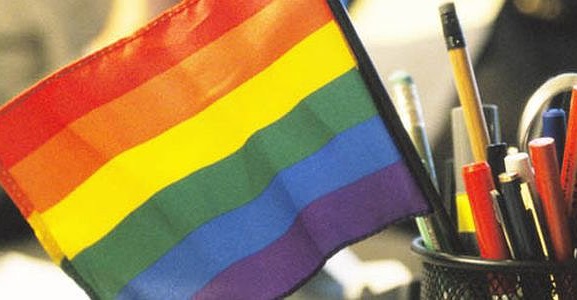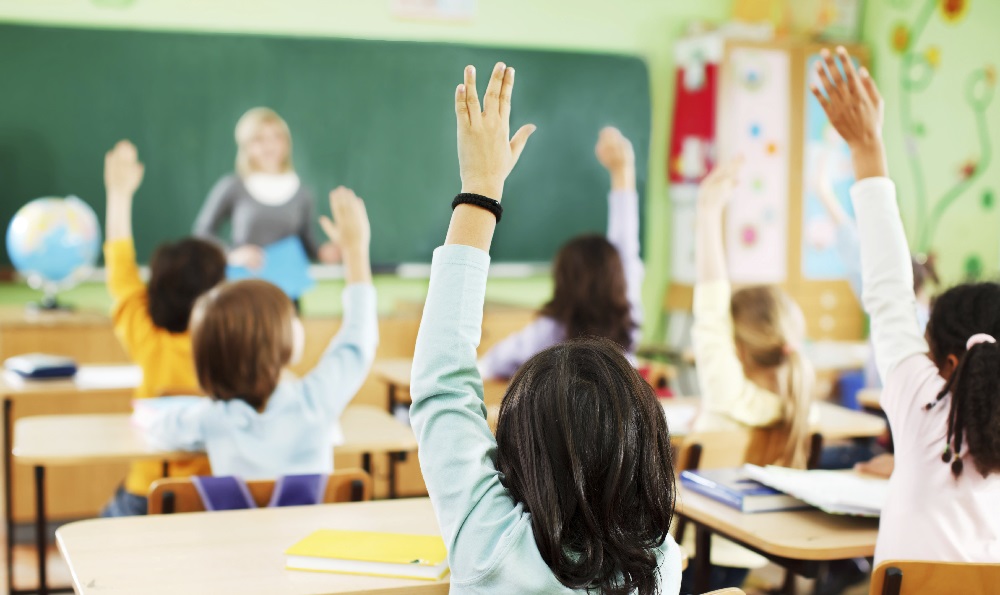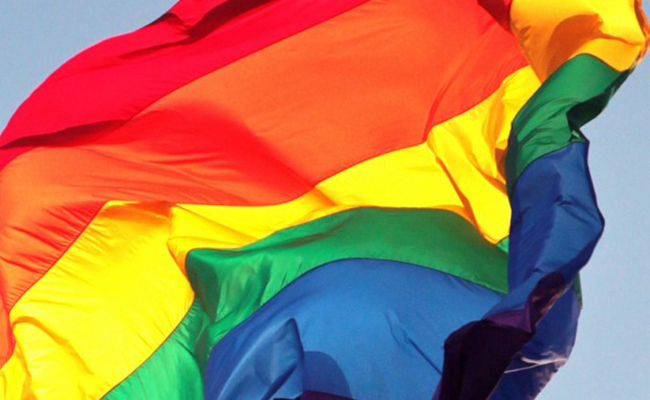LGBT-inclusive education: What do the government guidelines actually say?
As the row over 'No Outsiders' escalates, what do the guidelines say schools should be doing?
By Will Stroude

Words: Will Stroude
As four more primary schools in Birmingham suspend lessons on LGBT acceptance following a homophobic backlash from parents, the issue of LGBT-inclusive education looks set to become the next major battleground in the fight for equality.
The ‘No Outsiders’ programme that has seen parents protesting outside the school gates of Parkfield Community School teaches children under the age of 11 about diversity and acceptance on a range of topics including race, gender, disability and sexuality.
Importantly, the lessons do not cover any aspect of sex education – and were recently backed as entirely “age-appropriate” for primary school children by Ofsted. But the mass withdrawal of children from school by parents, mostly of Islamic faith, meant the school has been forced to suspend the programme “until a resolution is reached.”
But what do government guidelines actually say about how LGBT topics should be covered in classrooms in England?
16 years on from the repeal of Section 28, which banned local authority-run schools from “promoting” homosexuality, the answer is that it’s currently a very grey area, with a strong emphasis put on the views of parents.

Under current legislation, local authority-run schools in England are obliged to teach sex and relationships education (SRE) from the age of 11 upwards, i.e. at secondary school only.
Academies and free schools, which form the majority of secondary schools in England, do not have to follow the National Curriculum and so are not obliged to teach SRE. Parents at all schools are also free to withdraw their children from SRE until their child is 16 (with the exception of scientific classes covering biological reproduction).
Any schools that do teach SRE, local authority-run, academy of free, must “have regard” for the government’s SRE guidance. Within this, there is a dedicated section on sexuality and sexual orientation, which says is “up to schools to make sure that the needs of all pupils are met”, and that schools “need to be able to deal with homophobic bullying.”
It goes on: “Young people, whatever their developing sexuality, need to feel that sex and relationship education is relevant to them and sensitive to their needs.”
It notes that “teachers should be able to deal honestly and sensitively with sexual orientation, answer appropriate questions and offer support. There should be no direct promotion of sexual orientation.”
Importantly, a strong emphasis is placed on the views of parents, with lines explicitly stating that SRE policies should “reflect parents’ wishes” and allow them to feel “actively involved in the determination of the school’s policy.”
It adds: “Governing bodies and head teachers should consult parents in developing their sex and relationship education policy to ensure that they develop policies which reflect parents’ wishes and the culture of the community they serve.”
Of course, these guidelines have only been designed for secondary school sex and relationships education: when it comes to primary schools simply teaching pupils that LGBT people exist, there are currently no explicit guidelines in place.

Adding to the confusion is that all this is set to change from September 2020 following the government’s recent review of sex and relationship education – subject ot the proposals being approved by both the House of Commons and House of Lords.
The new legislation would introduce statutory ‘Relationships and Sex Education’ (RSE) in all secondary schools in England, and statutory ‘Relationships Education’ in all primary schools, with a new emphasis on LGBT content.
The strengthened LGBT section of the guidelines explicitly state that for both RSE and, importantly, Relationship Education (the kind being covered at primary level), “schools should ensure that the needs of all pupils are appropriately met, and that all pupils understand the importance of equality and respect.”
It adds: “Schools must ensure that they comply with the relevant provisions of the Equality Act 2010, under which sexual orientation and gender reassignment are amongst the protected characteristics.”
Despite the greater clarity the new policy brings, however, even these guidleines leave plenty of wiggle room for schools who might be reluctant to cover LGBT topics.
While insisting “all pupils” must be taught LGBT content at a “timely point” as part of a fully-integrated curriculum (i.e., you can’t just have one lesson on the gay stuff), they say this can be left until “the point at which schools consider it appropriate.”
In addition, the new rules allow “flexibility for schools in their approach, including for faith schools to teach within the tenets of their faith.”

As before, parents will have the right to withdraw their child from sex education, but now teens will have the right to ‘opt-in’ themselves as they approach age 16.
The withdrawal power does not extend to relationship-only education, however, which importantly would now include LGBT acceptance and diversity.
Clearly, lessons like the now-suspended ‘No Outsiders’ programme implemented by Parkfield primary school would be in keeping with the the new guidelines after September 2020, should they be passed by Parliament – but of course, these guidelines have yet to be officially implemented.
However, the response of local authorities and the government to the current protests against LGBT acceptance lessons will establish a vital precendent as to how these new guidelines are not only implemented but adhered to in the face of opposition.
The backlash currently being witnessed at schools like Parkfield is indicative of just how important these changes will be, and how scared those who’d erase LGBT kids’ existence from the classroom are.
One thing is clear: it’s our duty as a community to stand behind schools following the new guidelines to ensure a new generation of schoolkids coming to terms with their identity aren’t punished by a system that is too scared to acknowledge them.
